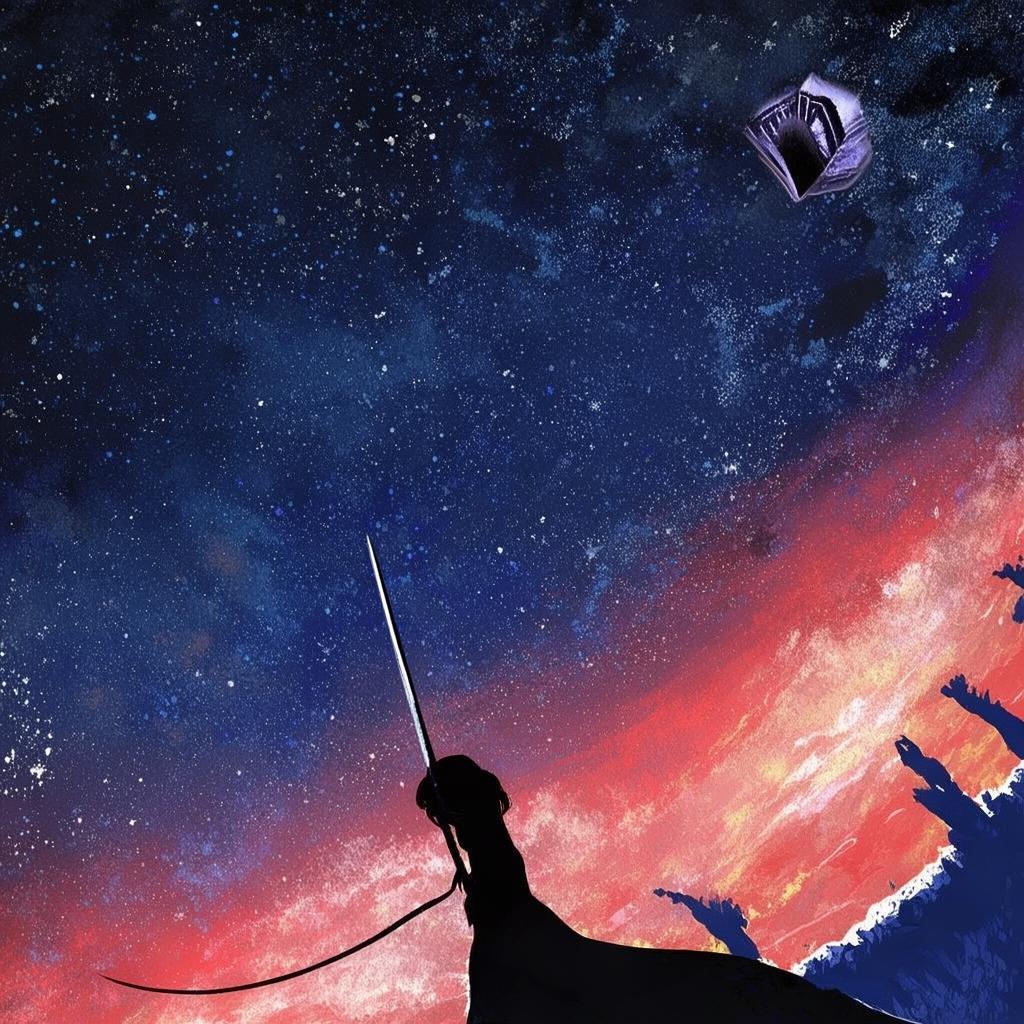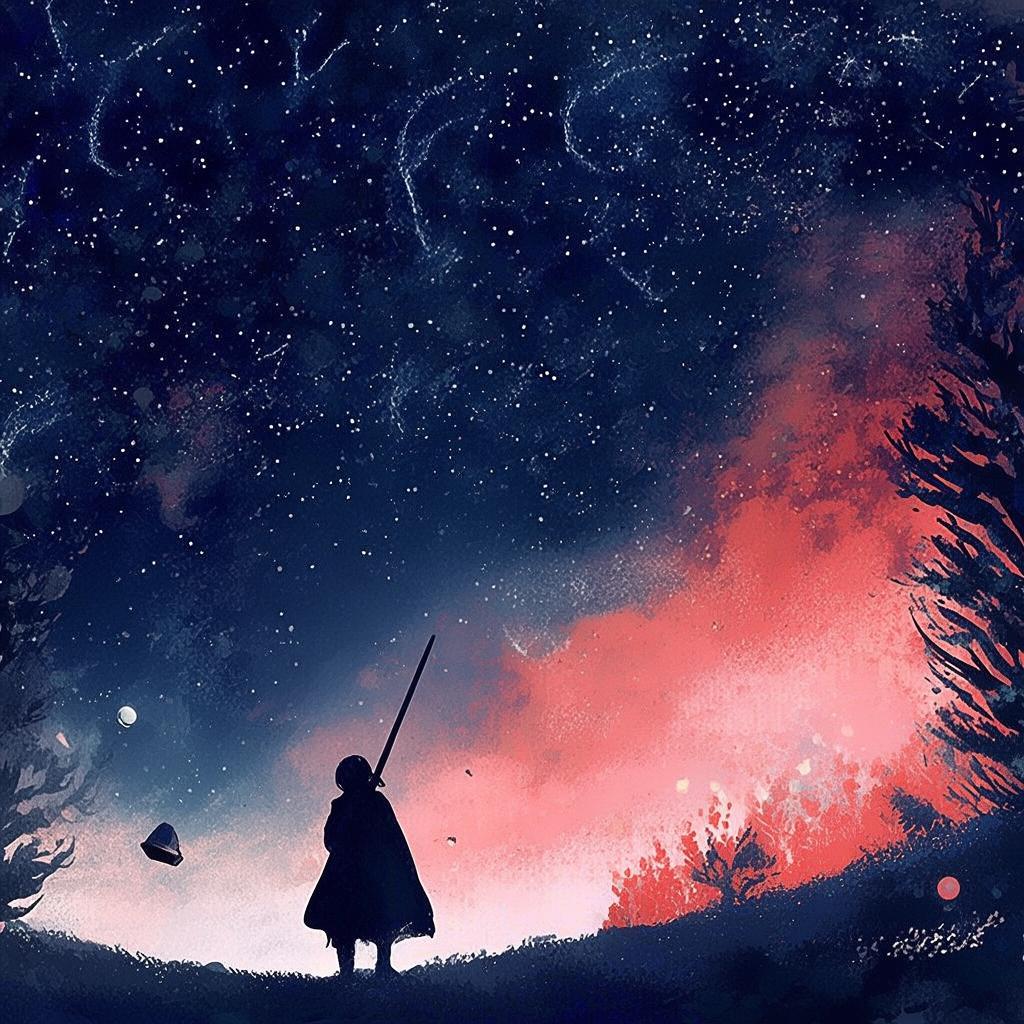The Paradox of the Mirror: A Labyrinthine Reflection
In the heart of an ancient city, where the streets were paved with the whispers of logic and the air was thick with the scent of paradox, there stood an enigmatic labyrinth known as The Paradox of the Mirror. It was said that those who entered its depths would never return, for the labyrinth was a reflection of the mind, a place where the boundaries between truth and illusion blurred.
Amara, a young philosopher with a mind as sharp as a scalpel, had always been fascinated by the labyrinth's mysteries. She was drawn to its allure, to the promise of understanding the very fabric of reality. One fateful day, she decided to venture into the labyrinth, determined to uncover the secrets it held.
As she stepped through the entrance, the world around her changed. The walls of the labyrinth were not made of stone but of glass, reflecting her every move. The path before her was not straight but twisted and winding, leading to dead ends and sudden turns. She found herself in a room where every mirror seemed to hold a different truth, each one challenging her understanding of reality.
"Logic is the foundation of all knowledge," she mused, but as she moved through the labyrinth, she realized that logic itself was a paradox. "If I accept that logic is true, then it must be false. If I accept that logic is false, then it must be true."
Amara encountered several characters along her journey, each representing a different aspect of her own mind. There was the Scholar, who taught her the principles of logic, but whose words often contradicted themselves. There was the Dreamer, who spoke of the beauty of the unknown, but whose dreams were as elusive as the labyrinth itself. And there was the Destroyer, who sought to unravel the very fabric of the labyrinth, a symbol of Amara's own inner turmoil.
As she delved deeper into the labyrinth, Amara's mind became a battleground of ideas. She grappled with the concept of identity, the nature of reality, and the role of logic in understanding the world. She found herself questioning everything she knew, from the existence of God to the nature of consciousness.
One day, she stumbled upon a room filled with mirrors, each reflecting her face in a different pose, a different expression. She realized that the labyrinth was not just a physical place, but a reflection of her own inner struggles. "Am I the Scholar, the Dreamer, or the Destroyer?" she asked herself. "Or am I all of them?"
The labyrinth's riddles became increasingly complex, each one a step further into the depths of her own consciousness. She encountered questions that seemed to have no answers, puzzles that seemed to defy logic itself. Yet, in the face of these challenges, Amara's resolve never wavered.

As the labyrinth began to close in around her, she found herself at the heart of the labyrinth, where a single mirror stood, reflecting nothing but her own face. "You are the labyrinth," a voice echoed in her mind. "You are the truth and the illusion."
In that moment, Amara understood that the labyrinth was not a place to be solved, but a journey to be undertaken. She realized that the true challenge was not to find the way out, but to accept the paradoxes within herself.
With a deep breath, Amara stepped forward, embracing the contradictions that made up her very essence. She found that as she accepted the paradoxes, the labyrinth began to unravel, revealing a path that led to the exit.
As she stepped out of the labyrinth, Amara felt a sense of peace. She realized that the journey had not been about escaping the labyrinth, but about understanding herself. She had faced the paradoxes of her own mind and found that they were not obstacles to be overcome, but windows into the deeper truths of existence.
The Paradox of the Mirror had been a reflection of Amara's own journey, a journey of self-discovery that had led her to a profound understanding of the world and her place within it. She had learned that the truth was not a single, unchanging entity, but a collection of paradoxes that defined reality itself.
And so, Amara left the labyrinth, a changed woman, carrying with her the wisdom of the paradoxes she had faced. She knew that the journey would continue, that the labyrinth would always be there, waiting for her to return, but this time, she would return as a master of paradox, a philosopher who had learned to dance with the contradictions of existence.
✨ Original Statement ✨
All articles published on this website (including but not limited to text, images, videos, and other content) are original or authorized for reposting and are protected by relevant laws. Without the explicit written permission of this website, no individual or organization may copy, modify, repost, or use the content for commercial purposes.
If you need to quote or cooperate, please contact this site for authorization. We reserve the right to pursue legal responsibility for any unauthorized use.
Hereby declared.









